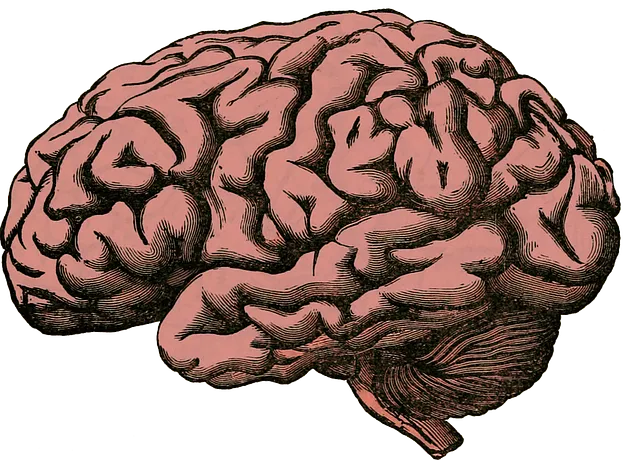Kaiser Permanente mental health Westminster prioritizes staff well-being and risk management in high-stress environments by offering specialized training, workshops, and podcasts on stress reduction, resilience, and self-care. They utilize case studies to improve practices, adapt to diverse patient needs, and mitigate risks associated with complex cases involving trauma or cultural barriers. Continuous learning through tailored programs enhances professional confidence and patient care outcomes.
Mental health professionals, like their peers in physical healthcare, face unique risks on the job. This article explores a comprehensive risk assessment framework tailored specifically for Kaiser Permanente mental health professionals in Westminster. We delve into identifying potential hazards prevalent in clinical practice and discuss implementing effective risk mitigation strategies. Continuous training and education are highlighted as essential tools for enhancing resilience. Additionally, we present case studies illustrating lessons learned from past incidents to promote safer, more robust care environments.
- Understanding Mental Health Professional Risks at Kaiser Permanente Westminster
- Identifying Potential Hazards in Clinical Practice
- Implementing Risk Mitigation Strategies
- Continuous Training and Education for Improved Resilience
- Case Studies: Lessons Learned from Past Incidents
Understanding Mental Health Professional Risks at Kaiser Permanente Westminster

At Kaiser Permanente Westminster, understanding the unique risks faced by mental health professionals is paramount. These risks can stem from high-stress work environments, heavy caseloads, and emotional demands required to provide compassionate care. The organization actively recognizes these challenges and has implemented several initiatives to support its dedicated mental health workforce. One such strategy involves offering specialized Healthcare Provider Cultural Competency Training, which equips staff with the tools to navigate diverse patient backgrounds and cultural contexts effectively.
Furthermore, Kaiser Permanente Westminster promotes a culture of resilience through Stress Management Workshops organized within the organization. These workshops aim to equip professionals with healthy coping mechanisms to manage stress and prevent burnout. Additionally, the emphasis on Depression Prevention programs underscores the commitment to holistic mental health support. By prioritizing these aspects, Kaiser Permanente Westminster ensures that its mental health professionals can provide optimal care while maintaining their well-being.
Identifying Potential Hazards in Clinical Practice

Mental health professionals at Kaiser Permanente mental health Westminster frequently encounter complex patient cases and diverse clinical scenarios. To effectively manage risks, it’s crucial for them to identify potential hazards within their practice settings. These could include high-risk patients with severe depression or suicidal ideation, complex family dynamics, limited access to resources, or cultural and linguistic barriers.
By adopting a proactive approach, professionals can mitigate these risks. Regular risk assessments, informed by Self-Care Routine Development for Better Mental Health practices, become indispensable tools. They help in early identification of patients’ deteriorating conditions, ensuring timely interventions. Moreover, fostering an environment that prioritises staff well-being and encourages open discussions about stress management contributes to preventing professional burnout and depression, ultimately enhancing patient care outcomes.
Implementing Risk Mitigation Strategies

Implementing Risk Mitigation Strategies is a key component in maintaining a healthy work environment for Kaiser Permanente mental health professionals in Westminster. By adopting proactive measures, practitioners can mitigate potential risks and promote resilience. This involves integrating practices that enhance self-care routine development for better mental health, fostering coping skills development, and incorporating mindfulness meditation into their daily routines.
These strategies not only help professionals manage stress and prevent burnout but also improve patient care. Regular sessions dedicated to Self-Care Routine Development, for instance, ensure practitioners prioritize their well-being, leading to increased focus and improved interactions with patients. Coping Skills Development equips them with effective mechanisms to navigate challenging situations, enhancing job satisfaction and overall mental resilience.
Continuous Training and Education for Improved Resilience

At Kaiser Permanente mental health Westminster, continuous training and education are paramount to fostering resilience among professionals. The Stress Management Workshops Organization offers tailored programs designed to equip healthcare providers with effective coping mechanisms, enhancing their ability to navigate challenging situations. These workshops not only teach practical strategies for stress reduction but also encourage open discussions on the unique challenges faced in the field.
Beyond workshops, mental wellness podcast series production has emerged as a valuable tool. Engaging podcasts provide an accessible medium for professionals to explore topics like self-care, building resilience, and maintaining work-life balance. By integrating these resources into their ongoing education, Kaiser Permanente mental health Westminster professionals can boost confidence, enhance patient care, and improve their overall mental wellness.
Case Studies: Lessons Learned from Past Incidents

Mental health professionals at Kaiser Permanente mental health Westminster can learn invaluable lessons from past incidents through case studies. By examining real-life scenarios, they gain insights into potential risks and challenges that may arise in their practice. For instance, a case study could highlight how a particular patient’s history of trauma led to unexpected behaviors, requiring the clinician to adapt their approach and ensure patient safety. This process encourages professionals to think critically about risk assessment strategies, fostering a culture of continuous improvement within the organization.
Furthermore, studying these cases can inform the development of robust mental health policy analysis and advocacy initiatives. Identifying recurring themes in adverse outcomes can drive the creation of guidelines for self-care routine development, emphasizing the importance of maintaining personal well-being to prevent burnout. Additionally, public awareness campaigns development may emerge from case studies, aiming to educate both professionals and the community on recognizing and mitigating risks associated with mental health practices.
Mental health professionals at Kaiser Permanente Westminster face unique challenges that demand a proactive approach to risk assessment. By understanding and identifying potential hazards in clinical practice, implementing effective risk mitigation strategies, prioritizing continuous training, and learning from case studies, healthcare providers can enhance their resilience and better support patients. Adopting these measures ensures a safer environment for both practitioners and the Kaiser Permanente mental health Westminster community they serve.






